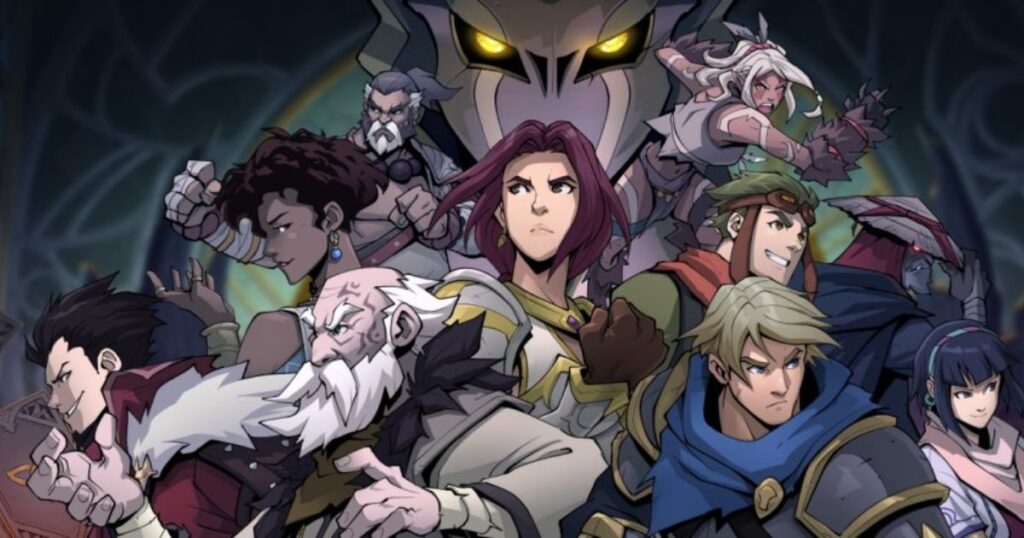Action role-playing games (ARPGs) have carved out a special place on PlayStation, combining fast-paced combat with the rewarding progression of traditional RPGs. What makes many of these titles stand out is their skill tree systems, giving players the power to shape their character’s abilities, combat style, and overall journey. Whether you want to unleash devastating magic, master agile melee attacks, or experiment with hybrid builds, skill trees make every decision meaningful and every playthrough unique.In this guide, we’ll explore the best playstation arpg with skill tree, from legendary open-world epics to intense dungeon-crawling adventures. Each of these games offers deep customization, letting you create a character that feels truly your own. Whether you’re a newcomer to playstation arpg with skill tree or a seasoned player looking for your next big challenge, these games deliver both thrilling combat and the freedom to build your hero your way.
What Makes a Great ARPG with Skill Trees?
Before diving into the list, let’s define what makes an ARPG stand out for its skill trees and build depth:
- Flexible Skill Trees: Systems that offer diverse, branching paths for abilities, allowing players to mix and match skills for unique builds.
- Build Depth: Meaningful choices that impact gameplay, such as specialising in melee, magic, Top 10 Best Switch Indie Games You Need to Play Now stealth, or hybrid styles, with synergy between skills and gear.
- Replayability: Extensive customization that encourages multiple playthroughs to try different builds.
- Action-Oriented Combat: Fast, responsive mechanics that reward skill and strategy, complementing the progression system.
These elements ensure players can tailor their characters to their preferred playstyle, whether it’s a glass-cannon mage, a tanky warrior, or a versatile hybrid. With that in mind, here are the top witcher 3 help the tree with the best skill trees and build depth, ranked based on their progression systems, combat, and overall impact.

Elden Ring (PS5 / PS4)
FromSoftware reimagines action RPGs with a vast open world, deep class-based customization, and robust combat. Players invest in attributes like Strength, Dexterity, Intelligence, or Faith to tailor builds around melee combat, magic, Ghost Of Tsushima PC or hybrid styles. The game rewards experimentation through weapons, talismans, and spells, letting you craft a unique hero suited to your play style. It stands as arguably the most flexible and rewarding customization system in modern ARPGs
The Witcher 3: Wild Hunt (PS4 / PS5)
You customize Geralt across four distinct skill trees: Combat, Signs (magic), Alchemy, and General. Each choice meaningfully affects gameplay: you can build a sword‑focused warrior, a spell‑slinging mage, or an alchemy expert who crafts powerful potions and bombs. Sign upgrades improve magical effectiveness, while alchemy unlocks crafting of bombs, oils, and mutagens. Its skill trees let you fine‑tune your character to your preferred style.
Nioh 2 (PS4 / PS5)
Team Ninja’s samurai action RPG offers profound ways to customize your character. You level up in weapon categories like dual swords, spears, and axes, each with multiple stances. You unlock skills and guardian spirits that define your combat style. I can respec and reallocate points to experiment with builds—such as pure nuker mage, heavy samurai slugger, or agile Yokai hybrid making every playthrough distinct. Nioh 2 shines with its layered combat and extensive skill options.
Dark Souls III (PS4 / PS5)
Despite its preset class system at the start, Dark Souls III gives free rein over attribute allocation after creation, allowing specialized builds: heavy strength knight, dexterity rogue, hybrid faith mage, and more. Weapon Arts and scaling add depth. Its progression rewards mastery and encourages replay through vastly different play styles. The game thrives on experimentation and build‑specific challenges.
Tales of Arise (PS5 / PS4)
Tales of Arise blends real‑time combat with a modest but fulfilling skill tree and upgrade paths for each character. You learn arts, passive skills, and unique combos, and develop party synergy in battle. Though its system remains more approachable than Souls-like, the narrative integration and character progression make each party member feel meaningful and customizable.
Bloodborne (PS4)
Bloodborne emphasizes aggressive combat and demands considerable player skill. You customize the Hunter with attribute distribution and weapon upgrades. The trick‑weapon system further allows transforming weapons with separate move sets. Exploring the Best Reviews on Letterboxd Video Games Though it lacks a typical branching skill tree, the build complexity in equipment, attributes, and tool combinations qualifies it as deeply customizable for action RPG fans.
Dragon’s Dogma: Dark Arisen (PS4 / PS5)

This open‑world fantasy witcher 3 help the tree features vocations (classes) like Fighter, Mage, Assassin, and Magic Archer. You can switch vocations mid‑game and unlock their entire ability trees. Combined with gear choice, party pawns, and climbing mechanics, Dragon’s Dogma gives you space to mould your hero into different roles—even within a single run.
NieR: Automata (PS4 / PS5)
Automata lets you customize 2B through “plug‑in chips” that affect weapons, hacking, modules, defence, and stealth. You mix weapon types and chips to create agile melee builds, support configurations, or ranged hacker builds. Though unconventional, its system offers surprising depth and encourages experimentation across multiple playthroughs and endings.
Kingdoms of Amalur: Re‑Reckoning (PS4)
This remastered classic includes a Destiny system that lets you specialize in various play styles and even respec mid‑game. You can shift between pure warrior, mage, rogue, or create hybrid builds with ease. Reddit fans call it “one of my favourite games ever”, thanks to its flexible skill paths and low entry price of $10, making it a powerful value pick.
Tips for Choosing and Playing ARPGs with Skill Trees
Choosing and mastering ARPGs with skill trees can feel overwhelming at first, but a few smart steps make the experience more enjoyable and rewarding. First, select a game that fits your play style. If you love intense challenges, try Elden Ring or Nioh 2; if you prefer story-driven adventures, go for The Witcher 3 or Tales of Arise. Before diving in, research the skill tree system. How to Fix PS5 Controller Stick Drift: A Comprehensive Guide Some focus on attributes like strength or magic, while others offer branching abilities that shape your character’s combat style.
As you play, don’t spread points too thin early on; focus on one or two paths to unlock stronger abilities faster. Experimentation is key, so take advantage of games that let you respec (reset skill points) to try new builds without restarting. Also, pay attention to gear synergy weapons, armour, and accessories, which often complement specific skill paths, maximizing your character’s potential. Finally, remember that ARPGs reward patience, exploration, strategic combat, and the enjoyment of crafting a hero that genuinely feels like your own.
Why Play ARPGs on PlayStation?

PlayStation’s ecosystem, from the PS2’s pioneering RPGs to the PS5’s DualSense immersion, elevates ARPGs. The DualSense’s haptics and adaptive triggers make combat in Elden Ring and Dragon’s Dogma II feel visceral, Best Nintendo Switch Games to Play on an Emulator while PS5’s SSDs reduce load times in sprawling worlds like Diablo IV. Backwards compatibility ensures PS4 classics like Bloodborne remain accessible, and PlayStation’s vibrant community fosters multiplayer experiences in games like Path of Exile.
Conclusion
Playstation arpg with skill tree deliver the perfect blend of action-packed combat and meaningful character progression. These games let you craft your own journey, turning every choice whether it’s unlocking a new skill, fine-tuning stats, or experimenting with unique builds into a personal adventure. From the brutal challenges of Elden Ring and Nioh 2 to the rich storytelling of The Witcher 3 and Tales of Arise, each title offers something special for every type of player.Whether you’re chasing intense battles, deep customization, or the thrill of replaying with a completely different playstyle, playstation arpg with skill tree with skill trees ensure no two experiences are ever the same. The more you invest in learning and experimenting, the more rewarding these worlds become, making every victory, every build, and every journey uniquely yours.
FAQ
1. What makes ARPGs with skill trees so appealing?
They combine fast-paced combat with meaningful progression, letting you unlock abilities, enhance stats, and create unique builds that match your play style.
2. Are these games beginner-friendly, or do they require experience with RPGs?
Many titles like Tales of Arise or Kingdoms of Amalur are friendly for newcomers, while Souls-like like Elden Ring or Nioh 2 demand patience and skill.
3. Do all skill trees work the same way?
No. Some games use attribute points (e.g., Dark Souls III), while others have branching ability trees (e.g., The Witcher 3). Some even allow full respect for experimentation.
4. Can you respec or change builds in these ARPGs?
Many modern ARPGs like Elden Ring, Nioh 2, and Kingdoms of Amalur let you respec, giving freedom to test new builds mid-game.
5. Are PlayStation ARPGs with skill trees primarily single-player or multiplayer?
Most are single-player (like Witcher 3 and Tales of Arise), but some offer online features. Elden Ring and Dark Souls III let you summon allies or duel invaders.
6. Which game has the deepest skill tree on PlayStation?
Games like Elden Ring and The Witcher 3 have some of the deepest and most flexible systems, offering dozens of paths for magic, melee, or hybrid builds.
7. Are these games worth replaying after finishing the main story?
Absolutely. Games like Elden Ring, Nioh 2, and Dark Souls III encourage replay with new builds, New Game Plus modes, and multiple endings..






